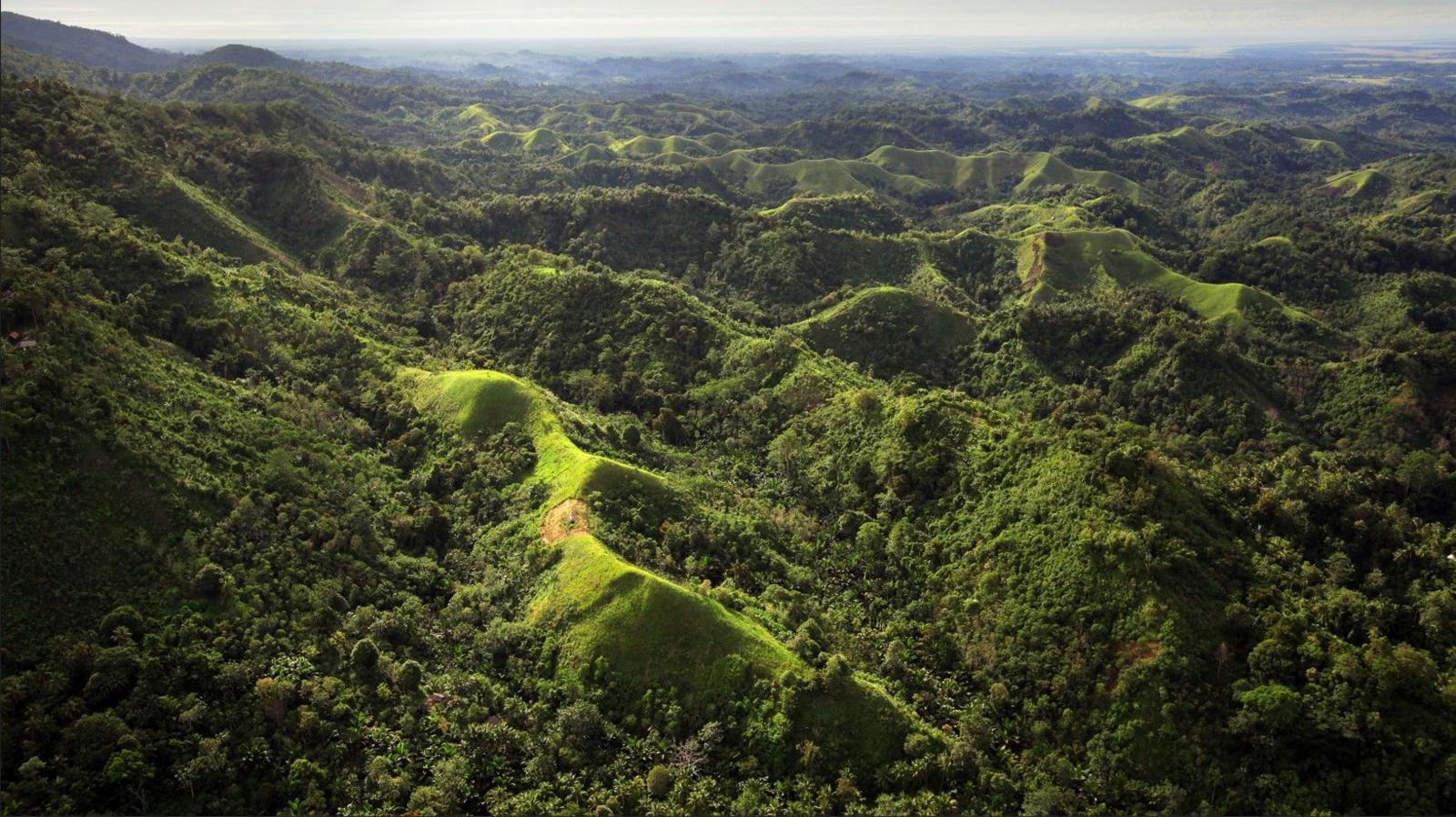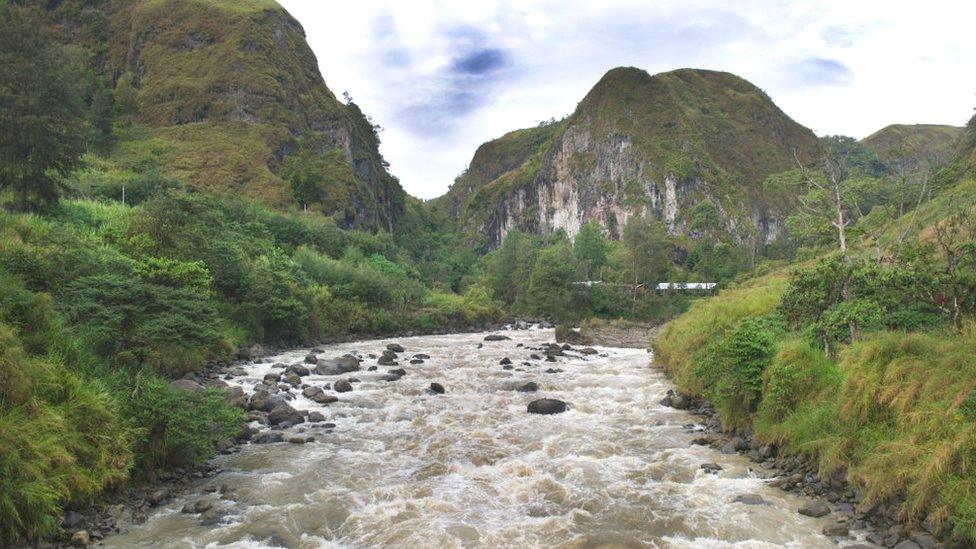Gang kills women and children in Papua New Guinea massacre - reports

The attacks happened in East Sepik province, in Papua New Guinea
- Published
Dozens of villagers have reportedly been killed after a gang of young men launched a series of attacks in a remote region of Papua New Guinea.
Survivors of the massacre have described hearing their neighbours' cries of pain, and watching as others were speared as they tried to flee the gang in canoes.
At least 26 people - including 16 children - were killed, local media reported, with fears the death toll may yet rise to 50 as the search for survivors continues.
United Nations human rights chief Volker Türk said the "shocking" violence seemed to be "the result of a dispute over land and lake ownership and user rights" and appealed to officials to "ensure those responsible are held to account".
Governor Allan Bird told Australia's ABC News there were just 20 police officers for the 100,000 people who live in the Angoram district of East Sepik province where the attack took place.
National police have now arrived in the region to help with the investigation - more than a week after the violence took place.
But according to local media, police already know the identity of the more than 30 men who carried out the attacks between 16 and 18 July.
The gang - who Angoram police Inspector Peter Mandi said called themselves “I don’t care”, according to the Guardian, external - were armed with guns, knives and axes, attacking in the early hours.
They allegedly raped and killed their victims, setting numerous homes alight.
One woman described how she had floated for hours clinging to a log, trying to remain quiet while the attack went on around her.
"I could hear women wailing in pain, children crying out. I was lucky the men didn't see me," she told The National newspaper., external
Another survivor said simply of the "surprise" attack: "We were helpless."
The villagers who could escaped into the surrounding bush, leaving behind the dead.
Provincial police commander Senior Inspector James Baugen described to the Post Courier , externalhow bodies had been left "rotting" in the village, while others had been taken by crocodiles after floating down the river.
He added that many of the dead were mothers and their children.
Gov Bird said law and order had been on the decline in the region for the last six months.
It was thought land ownership was also the cause of a similarly shocking attack in Papua New Guinea's Highlands in February, in which another 26 people were killed.
A year ago, escalating tribal conflict over land and wealth led to a three-month lockdown in Enga province, during which police imposed a curfew and travel restrictions.
Related topics
- Published19 February 2024
